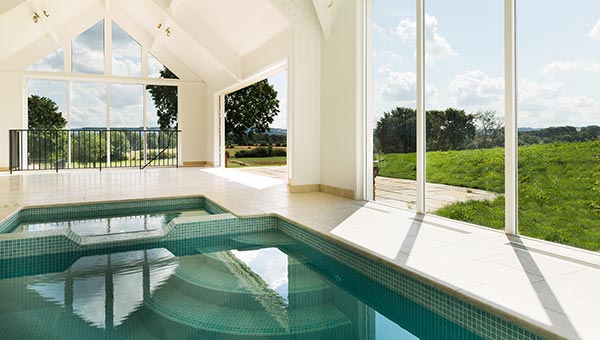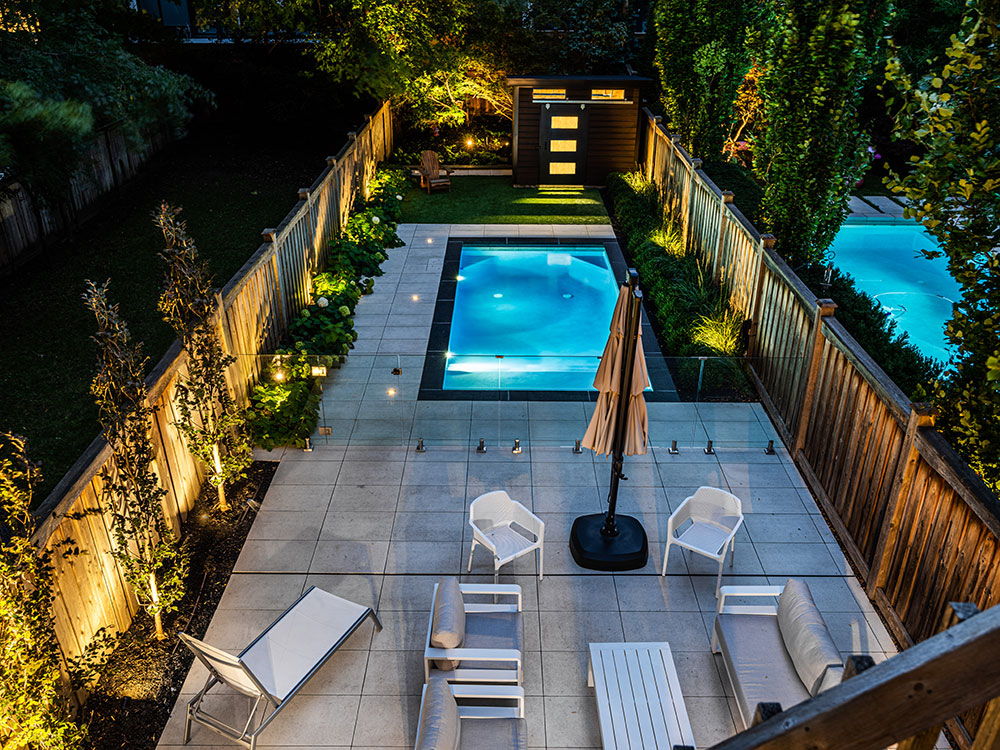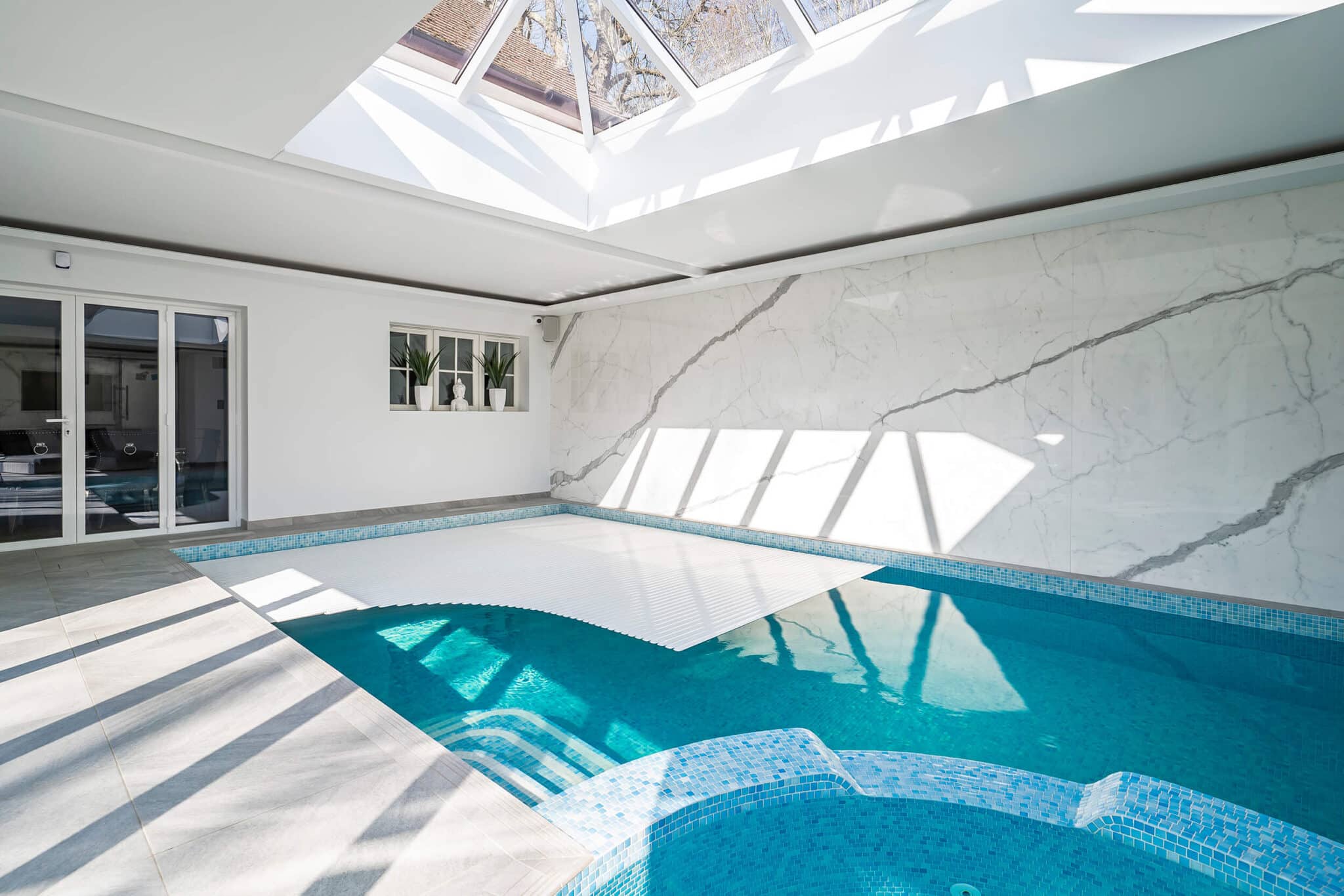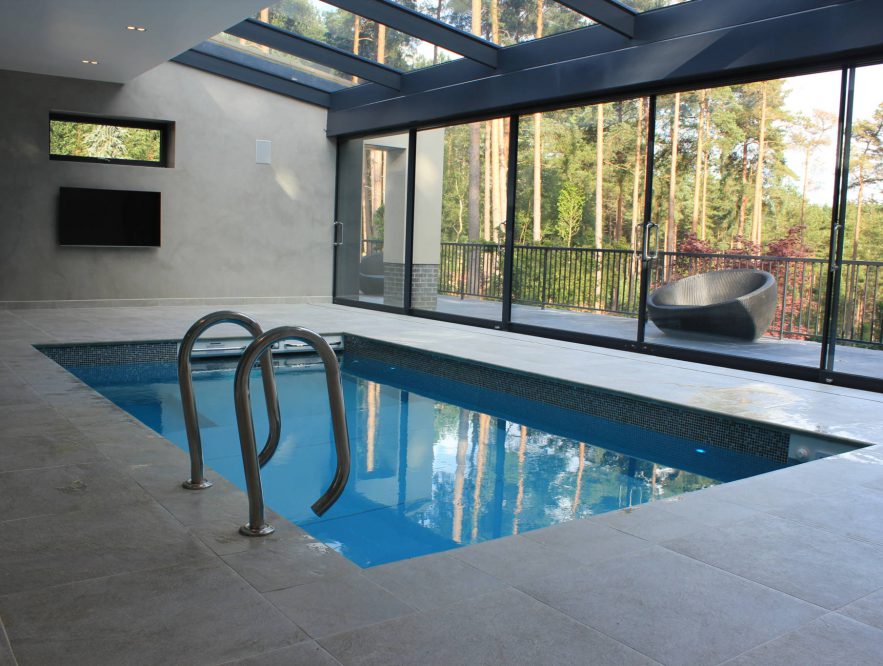
Indoor swimming pools offer numerous benefits, making them a desirable addition to any home or facility. Not only do they provide year-round access to swimming, but they also offer various health benefits for both physical and mental well-being. When designing an indoor pool, factors such as size, shape, and layout should be considered. Additionally, choosing the right materials and features can enhance the pool’s functionality and aesthetics. While indoor pools may require initial investment and regular maintenance, the ability to control temperature and humidity creates a comfortable swimming environment. Ultimately, having an indoor swimming pool can greatly enhance one’s lifestyle by providing a convenient and enjoyable way to stay active and relax.
Advantages of Having an Indoor Swimming Pool

Having an indoor swimming pool offers numerous advantages. Firstly, it provides year-round access to swimming, regardless of the weather conditions outside. This means you can enjoy swimming and exercise whenever you want. Additionally, indoor pools offer privacy and convenience, as they can be easily accessed from the comfort of your own home. They also provide a controlled environment, allowing you to regulate factors such as temperature and humidity for optimal comfort. Overall, owning an indoor swimming pool enhances your lifestyle by providing a convenient and enjoyable way to stay active and relax.
Year-round Access to Swimming with Indoor Pools

Having an indoor swimming pool provides the advantage of year-round access to swimming, allowing individuals to enjoy this activity regardless of the weather conditions outside. This means they can maintain their fitness routine and relaxation even during colder months or inclement weather. Indoor pools offer a controlled environment that can be easily accessed from the comfort of one’s own home, providing convenience and privacy. Additionally, individuals can regulate factors such as temperature and humidity for optimal comfort while swimming indoors.
Health Benefits

Physical Health Benefits of Swimming Indoors
Swimming indoors offers numerous physical health benefits, including improved cardiovascular fitness, increased muscle strength and endurance, and enhanced flexibility. It is a low-impact exercise that puts minimal stress on joints, making it suitable for people of all ages and fitness levels. Regular swimming can also help in weight management, improve lung capacity, and promote overall body toning. Additionally, swimming is known to alleviate symptoms of certain chronic conditions such as arthritis and asthma.
Physical Health Benefits of Swimming Indoors

Swimming indoors provides a range of physical health benefits such as improved cardiovascular fitness, increased muscle strength and endurance, and enhanced flexibility. It is a low-impact exercise that is suitable for people of all ages and fitness levels, putting minimal stress on joints. Regular swimming can also aid in weight management, improve lung capacity, and promote overall body toning. Additionally, swimming has been known to alleviate symptoms of chronic conditions like arthritis and asthma.
Mental Health Benefits of Indoor Swimming

Swimming indoors also offers numerous mental health benefits, including stress reduction, improved mood, and increased relaxation. The soothing qualities of water combined with the rhythmic movements of swimming can help alleviate anxiety and promote a sense of calm. Swimming can also boost endorphin levels, which are natural mood-enhancers, leading to increased feelings of happiness and well-being. Additionally, the repetitive nature of swimming can provide a meditative experience, allowing individuals to clear their minds and focus on the present moment.
Design and Construction

Factors to consider when designing indoor swimming pools include the available space, desired shape and size of the pool, and any specific features or amenities desired. Materials such as fiberglass, concrete, or vinyl can be used for construction, each with their own advantages and considerations. It’s important to work with experienced professionals who understand the unique requirements of indoor pool construction and can ensure that the design meets safety regulations. By carefully considering these factors, individuals can create a well-designed indoor swimming pool that meets their needs and enhances their overall enjoyment.
Factors to Consider When Designing Indoor Swimming Pools

When designing indoor swimming pools, it is essential to consider factors such as available space, desired shape and size of the pool, and specific features or amenities desired. Working with experienced professionals who understand safety regulations is crucial to ensure the design meets standards. Materials like fiberglass, concrete, or vinyl can be used for construction. By carefully considering these factors, individuals can create a well-designed indoor swimming pool that enhances their overall enjoyment and meets their needs.
Materials and Features for Indoor Pool Construction

When it comes to indoor pool construction, selecting the right materials and features is crucial. Common materials used for indoor pools include fiberglass, concrete, and vinyl. Each material has its own benefits and considerations in terms of durability, maintenance, and aesthetics. Features such as water filtration systems, heating and cooling systems, lighting, and safety measures should also be considered during the construction process. Working with experienced professionals who can guide you through the selection process is essential to ensure that your indoor pool meets your preferences and requirements.
Maintenance and Cost

Maintenance and cost are important considerations for indoor swimming pools. Regular maintenance, such as cleaning and chemical balancing, is necessary to keep the pool in top condition. Hiring professionals for regular inspections and repairs can help prevent costly issues. Additionally, investing in energy-efficient equipment and technology can help reduce operating costs in the long run. Staying on top of maintenance tasks and budgeting for potential repairs and upgrades will ensure that your indoor pool remains a valuable and enjoyable asset for years to come.
Cost Considerations for Indoor Swimming Pools

When considering the cost of an indoor swimming pool, it is essential to account for both upfront expenses and ongoing maintenance. The initial construction costs can vary depending on factors such as size, materials, and additional features. It is also crucial to budget for regular maintenance tasks like cleaning and chemical balancing. Hiring professionals for inspections and repairs can help prevent costly issues in the long run. Additionally, investing in energy-efficient equipment can help reduce operating costs over time. Proper cost considerations and maintenance will ensure that your indoor pool remains a valuable asset.
Maintenance Tips for Keeping Indoor Pools in Top Condition

To keep indoor pools in top condition, regular maintenance is essential. Here are some tips to ensure your pool remains clean and functional. First, regularly skim the water surface to remove debris. Second, vacuum the pool weekly to eliminate dirt and sediment. Third, test and balance the water’s chemical levels regularly to maintain a safe swimming environment. Fourth, clean the pool filters regularly to maintain proper circulation. Finally, schedule professional inspections and repairs as needed to address any issues promptly. By following these maintenance tips, you can keep your indoor pool in excellent condition for years to come.
Environmental Control

Regulating temperature and humidity is crucial for maintaining an indoor swimming pool. Install a reliable HVAC system to control the climate effectively. Consider using dehumidifiers to prevent excess moisture buildup. Regularly monitor and adjust the temperature and humidity levels for optimal comfort and to prevent mold and mildew growth. Maintaining proper air quality is also important, so make sure to have proper ventilation systems in place. By implementing these measures, you can create a comfortable and enjoyable environment for swimming in your indoor pool.
Regulating Temperature and Humidity in Indoor Swimming Pools

Install a reliable HVAC system to control the climate effectively in your indoor swimming pool and consider using dehumidifiers to prevent excess moisture buildup. Regularly monitor and adjust the temperature and humidity levels for optimal comfort and to prevent mold and mildew growth. Proper ventilation systems should be in place to maintain proper air quality. By implementing these measures, you can create a comfortable and enjoyable environment for swimming in your indoor pool.
Benefits of Climate-Controlled Indoor Swimming Environments

Climate-controlled indoor swimming environments offer numerous benefits.
- Enhanced Comfort: By regulating temperature and humidity levels, these environments provide a comfortable swimming experience regardless of the weather outside.
- Improved Air Quality: Proper ventilation systems help maintain clean and fresh air, reducing the risk of respiratory issues associated with chlorine and other pool chemicals.
- Preventing Mold and Mildew: Controlling humidity prevents excess moisture buildup, reducing the chances of mold and mildew growth, which can be harmful to health.
- Longer Swimming Season: With climate control, you can enjoy swimming year-round, extending the swimming season beyond the warmer months.
- Energy Efficiency: Modern HVAC systems designed for indoor pools are energy-efficient, minimizing operating costs while maintaining optimal conditions.
With these benefits, climate-controlled indoor swimming environments provide a perfect setting for enjoyable and healthy swimming experiences.
Conclusion

Enhancing Lifestyle with an Indoor Swimming Pool: Having an indoor swimming pool not only provides a convenient and enjoyable way to stay active, but it also enhances the overall lifestyle of individuals and families. With a climate-controlled environment, year-round access, and numerous health benefits, indoor swimming pools offer a luxurious and versatile addition to any home. Additionally, considering factors like design, construction materials, maintenance costs, and environmental control ensures that the pool remains in top condition while minimizing expenses. Ultimately, the decision to install an indoor swimming pool can greatly enhance the quality of life for those who enjoy swimming and relaxation.
Enhancing Lifestyle with an Indoor Swimming Pool

Having an indoor swimming pool enhances the overall lifestyle of individuals and families by providing a convenient and enjoyable way to stay active. With year-round access and a climate-controlled environment, indoor pools offer a luxurious addition to any home. The physical health benefits of swimming indoors include improved cardiovascular fitness and muscle strength, while the mental health benefits include stress reduction and improved mood. When designing an indoor pool, factors like size, shape, and lighting should be considered. Additionally, regular maintenance and cost considerations are important to keep the pool in top condition.
Frequently Asked Questions

Frequently Asked Questions
Q: What are the main benefits of having an indoor swimming pool?
A: Indoor swimming pools offer convenience, year-round access, and a climate-controlled environment.
Q: What are the physical health benefits of swimming indoors?
A: Swimming indoors improves cardiovascular fitness and muscle strength.
Q: What are the mental health benefits of indoor swimming?
A: Indoor swimming reduces stress and improves mood.
Q: What factors should be considered when designing indoor swimming pools?
A: Size, shape, and lighting are important factors in indoor pool design.
Q: What materials and features are commonly used in indoor pool construction?
A: Materials like fiberglass and concrete are commonly used, along with features like heating and filtration systems.
Q: How much does it cost to have an indoor swimming pool?
A: The cost of an indoor pool can vary greatly depending on size, materials, and additional features.
Q: How should I maintain my indoor pool to keep it in top condition?
A: Regular cleaning, proper chemical balance, and regular inspections are essential for maintaining an indoor pool.
Q: How can temperature and humidity be controlled in indoor swimming pools?
A: Climate control systems can regulate temperature and humidity levels in indoor pools.
Q: What is the overall benefit of having an indoor swimming pool?
A: Having an indoor pool enhances lifestyle by providing a convenient and enjoyable way to stay active.
